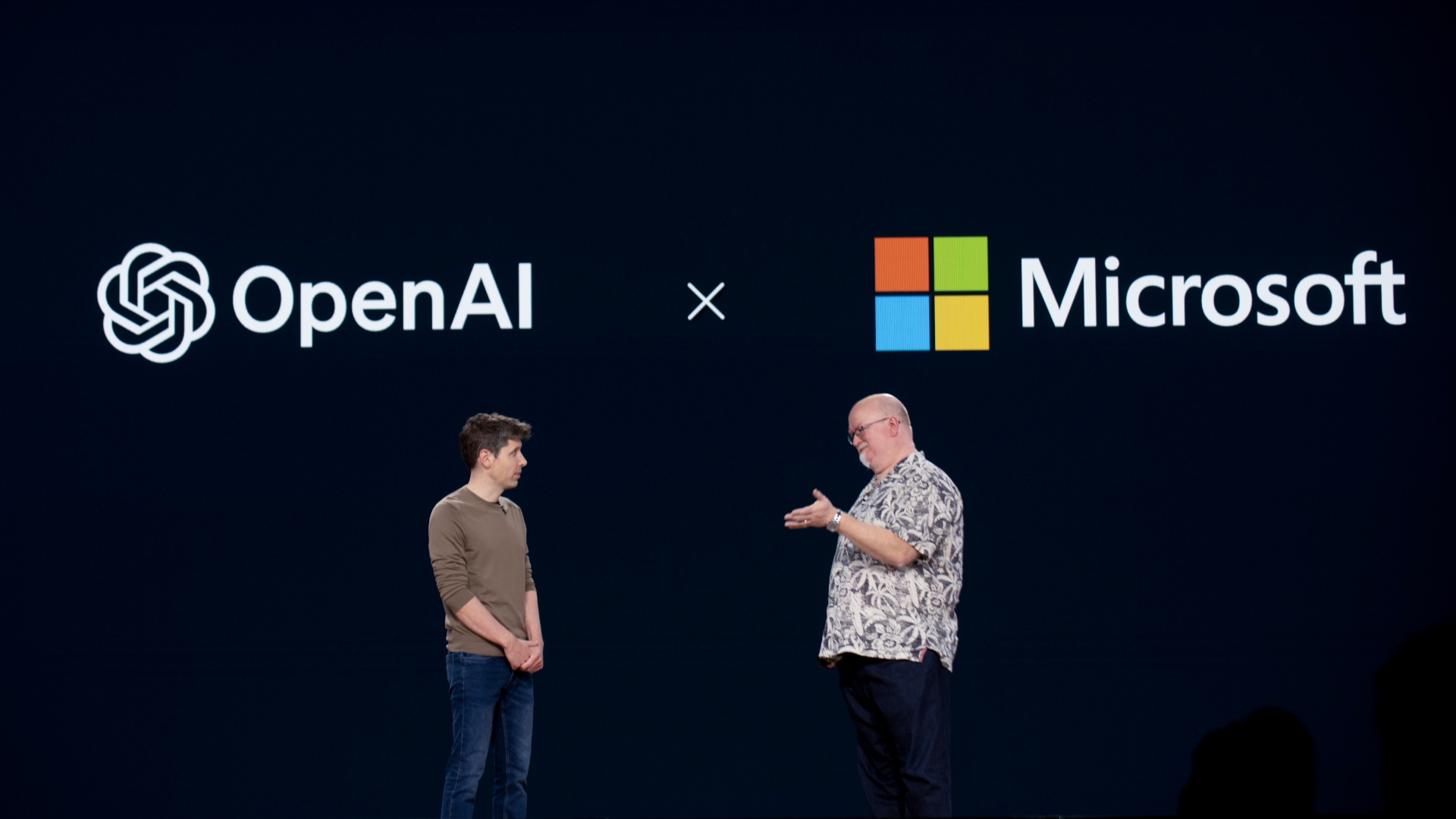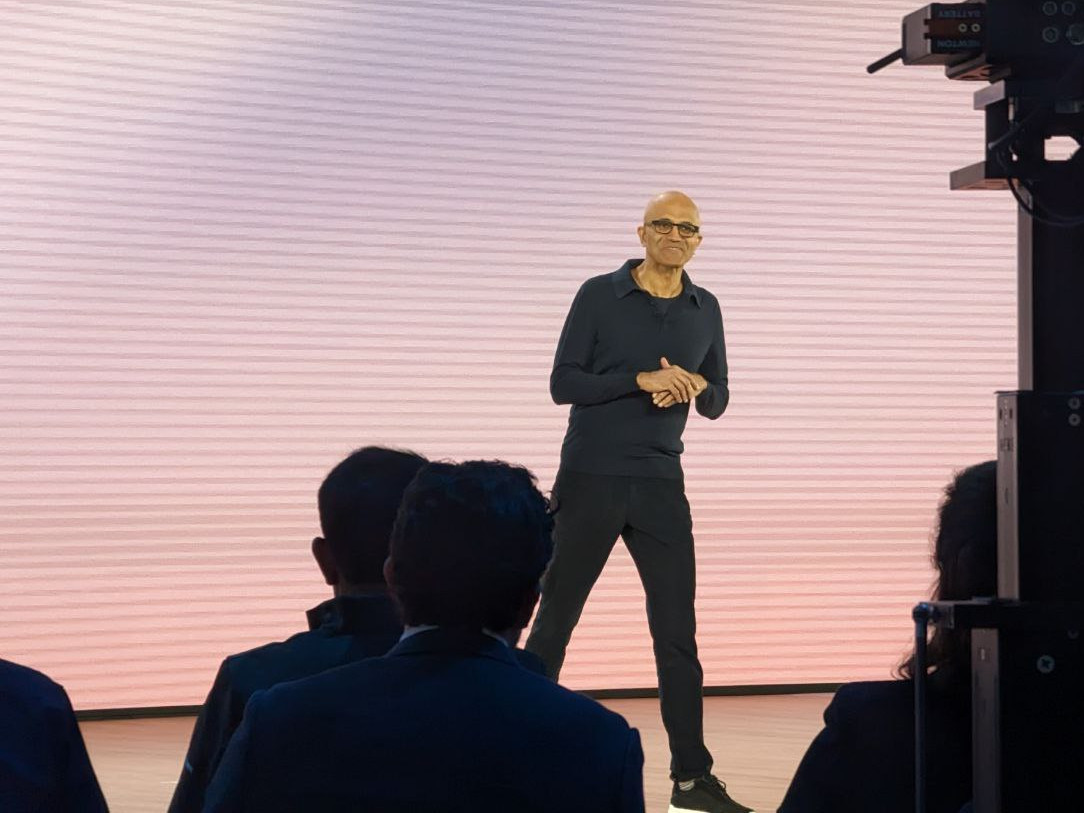OpenAI plays into Elon Musk's hands, ditching for-profit plan — but Sam Altman doesn't have Microsoft's blessing yet
OpenAI pulls the plug on evolving into a for-profit entity and says its non-profit business will retain control over the other arm.

All the latest news, reviews, and guides for Windows and Xbox diehards.
You are now subscribed
Your newsletter sign-up was successful
Over the past few months, OpenAI has been trying to evolve into a for-profit entity, especially after raising $40 billion in its latest round of funding, which pushed its market capitalization to $300 billion.
Aside from investor pressure, OpenAI wanted to evolve into a for-profit entity to avoid outsider interference and hostile takeovers. Interestingly, market analysts and experts claim Microsoft could acquire OpenAI within 3 years as investor interest in the landscape fades, prompting them to channel their funds elsewhere.
However, things took a different turn recently after OpenAI CEO Sam Altman shared an open letter announcing that the firm's nonprofit business will retain control over the for-profit.
We made the decision for the nonprofit to retain control of OpenAI after hearing from civic leaders and engaging in constructive dialogue with the offices of the Attorney General of Delaware and the Attorney General of California.
OpenAI CEO, Sam Altman.
Billionaire Tesla CEO Elon Musk filed two lawsuits against OpenAI and Sam Altman, citing a "stark betrayal of its founding mission" and alleged involvement in racketeering activities.
While the judge rejected Musk's request to block OpenAI's transition into a for-profit entity, certain parts of the lawsuit proceeded.
Around the same time, the billionaire made an unsolicited attempt to acquire the ChatGPT maker for $97.4 billion. However, the bid was turned down, and Sam Altman indicated that OpenAI and its mission were not for sale.
For context, OpenAI was founded as a non-profit research organization with a keen focus on developing safe AI. However, the ChatGPT maker decided to restructure its business in 2019 to a capped-profit model. As part of the model, the AI lab added a for-profit arm to help raise funds for its advances.
All the latest news, reviews, and guides for Windows and Xbox diehards.
CEO Sam Altman previously admitted that OpenAI's bid to transition to a for-profit entity would help the company raise enough funds to foster its advances, which could cost trillions. It'd be impossible for the company to scale such heights while running as a non-profit entity.
According to Sam Altman:
"Instead of our current complex capped-profit structure — which made sense when it looked like there might be one dominant AGI effort but doesn't in a world of many great AGI companies — we are moving to a normal capital structure where everyone has stock. This is not a sale, but a change of structure to something simpler."
As OpenAI's structure evolves, Altman indicated that he hopes to achieve the following feats through the AI lab:
- We want to be able to operate and get resources in such a way that we can make our services broadly available to all of humanity, which currently requires hundreds of billions of dollars and may eventually require trillions of dollars. We believe this is the best way for us to fulfill our mission and to get people to create massive benefits for each other with these new tools.
- We want our nonprofit to be the largest and most effective nonprofit in history that will be focused on using AI to enable the highest-leverage outcomes for people.
- We want to deliver beneficial AGI. This includes contributing to the shape of safety and alignment; we are proud of our track record with the systems we have launched, the alignment research we have done, processes like red teaming, and transparency into model behavior with innovations like the model spec. AI accelerates, our commitment to safety grows stronger. We want to make sure democratic AI wins over authoritarian AI.
Microsoft has yet to sign off on OpenAI
As you may know, Microsoft is OpenAI's largest investor with a $13.5 billion stake. According to Bloomberg, people with close affiliations with OpenAI and Microsoft say the software giant has yet to sign off on OpenAI's restructuring of its for-profit division as a public benefit corporation.
The source further claims that Microsoft wants to ensure that the restructuring won't negatively impact its investment. Additionally, Microsoft is negotiating the terms of OpenAI's restructuring, including its equity stake.
While OpenAI jumped ship from its initial plan to evolve into a for-profit entity, billionaire Elon Musk isn't satisfied yet. The Tesla CEO's lawyer, Marc Toberoff, indicated that OpenAI's restructuring doesn't address the legal claims Musk had made against the ChatGPT maker (via Reuters).
The lawyer further indicated that OpenAI's restructuring still violates its founding mission, especially if the firm continues to develop closed-source AI to benefit private parties. Toberoff claimed that OpenAI's transition to a public benefit corporation is a "transparent dodge" and doesn't address the critical issues raised in Musk's suit: "It changes nothing."

Kevin Okemwa is a seasoned tech journalist based in Nairobi, Kenya with lots of experience covering the latest trends and developments in the industry at Windows Central. With a passion for innovation and a keen eye for detail, he has written for leading publications such as OnMSFT, MakeUseOf, and Windows Report, providing insightful analysis and breaking news on everything revolving around the Microsoft ecosystem. While AFK and not busy following the ever-emerging trends in tech, you can find him exploring the world or listening to music.
You must confirm your public display name before commenting
Please logout and then login again, you will then be prompted to enter your display name.

